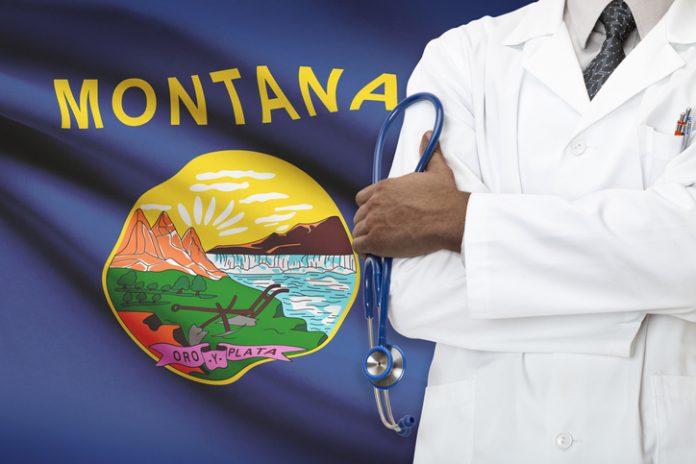The rapid growth of direct-pay health care in Montana prompted the Frontier Institute, a free-market public policy group, to launch an online hub to help consumers navigate the new market.
Frontier launched the hub after Montana Gov. Greg Gianforte (R) enacted sweeping direct-pay care (DPC) reforms last year.
“Last year Gov. Gianforte signed SB 101, the most expansive authorization of DPC in the country,” states the Frontier Institute website. “While other states authorize DPC only for primary care, Montana is the first state in the nation to allow DPC with any health provider.”
The “Free Market Healthcare Hub” provides a map of direct primary care and specialty care practices in the state. The hub tells consumers if the practices are actively accepting patients, advertise primarily as DPC practices, and list prices for all their services.
DPC charges consumers a flat monthly fee, like a gym membership. In states where DPC is considered insurance, it is subject to regulation and oversight by state insurance commissions, which can make it difficult for DPC to offer affordable fees.
Frontier confirms the information submitted on its site with a third-party source, such as the Montana Direct Patient Care Association. The hub lists 16 DPC practices with an average monthly cost of $77.
DPC grew dramatically after the reform measures were enacted, Tanner Avery, communications director at the Frontier Institute, told Health Care News.
“Since Governor Gianforte signed SB 101 into law, the number of providers in Montana has doubled,” said Avery. “Slashing red tape and giving entrepreneurs the maximum freedom to innovate has led to a booming market for affordable healthcare options.”
Direct Care Isn’t Insurance
The floodgates for DPC and direct care in Montana opened in 2021 after Gov. Greg Gianforte signed into law two bills involving significant reforms.
SB 101, introduced by Sen. Cary Smith (R–Billings) and signed on April 20, 2021, declares DPC is “not insurance.”
A lawsuit filed by the Institute for Justice prompted the Montana Legislature to pass the bill, says Phil Eskew, D.O., J.D., founder of DPC Frontier, a website that tracks the growth of direct care, and a policy advisor to The Heartland Institute, which co-publishes Health Care News.
“A few years ago, Montana was easily the toughest state in the Mountain West to operate a DPC practice,” said Eskew. “DPC physicians could have been accused of operating an insurance company without a license. SB 101 has provided clear guidelines that DPC physicians may follow to ensure they are not accused of unlawfully selling insurance.”
Physicians Can Dispense Drugs
In addition, SB 374, signed into law on May 11, 2021, allows physicians to dispense prescription drugs in their offices.
Medical practices were previously banned from dispensing drugs unless there was no community pharmacy available, says Eskew.
“SB 374 allows physicians—DPC or otherwise—to dispense medications directly to their patients, a practice that was already permitted in over 40 other states.”
Many of Montana’s reforms were based on DPC reform in Wyoming, says Eskew,
“I still reference Wyoming’s language when speaking with other states about what to draft,” said Eskew. “Portions of it are included in language from Montana, Kentucky, West Virginia, and many other states.
Legislation declaring DPC is not insurance passed the Montana Legislature in 2015 and 2017 but was vetoed by Gov. Steve Bullock (D).
AnneMarie Schieber (amschieber@heartland.org) is the managing editor of Health Care News.
For more great content from Health Care News.





















